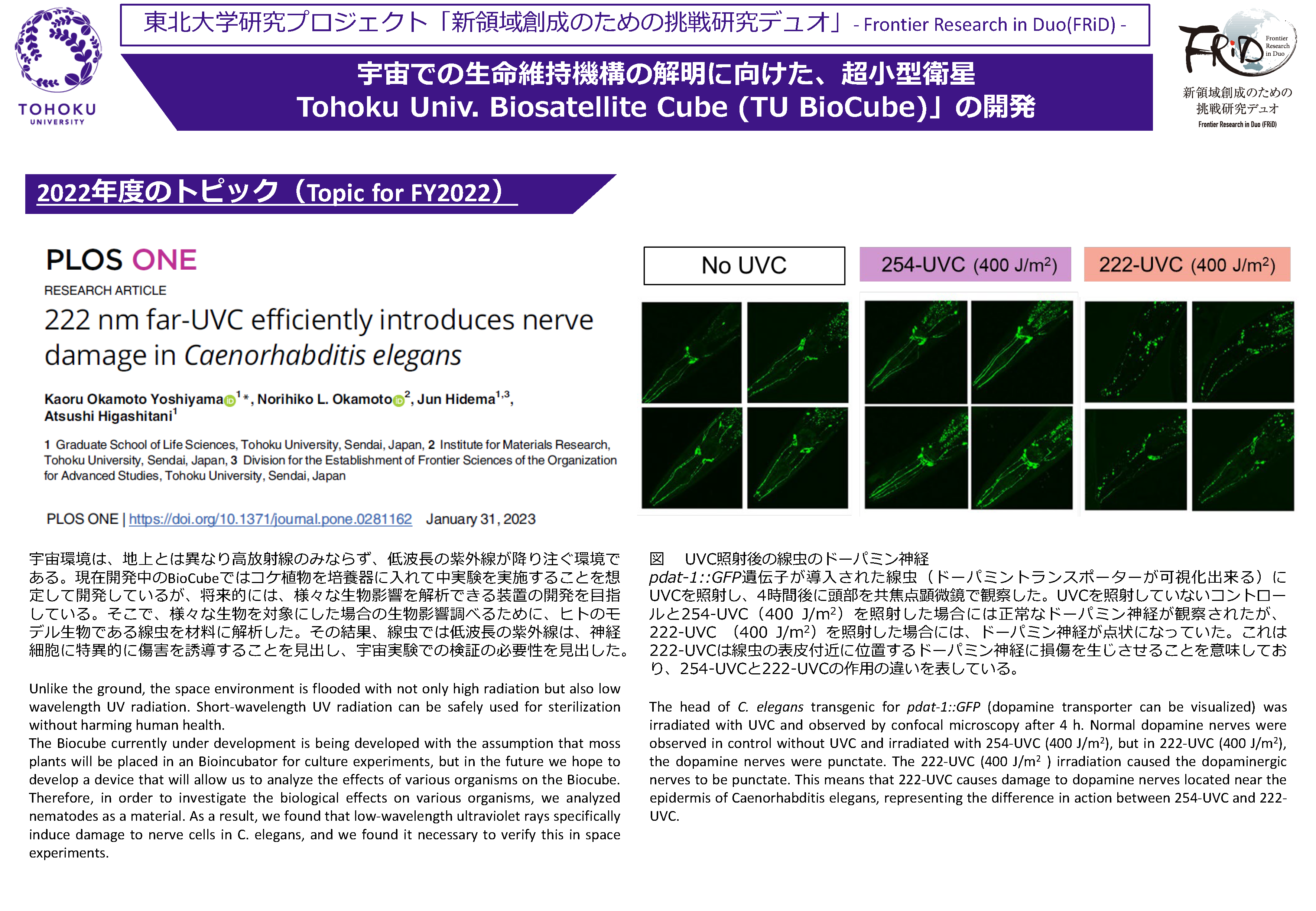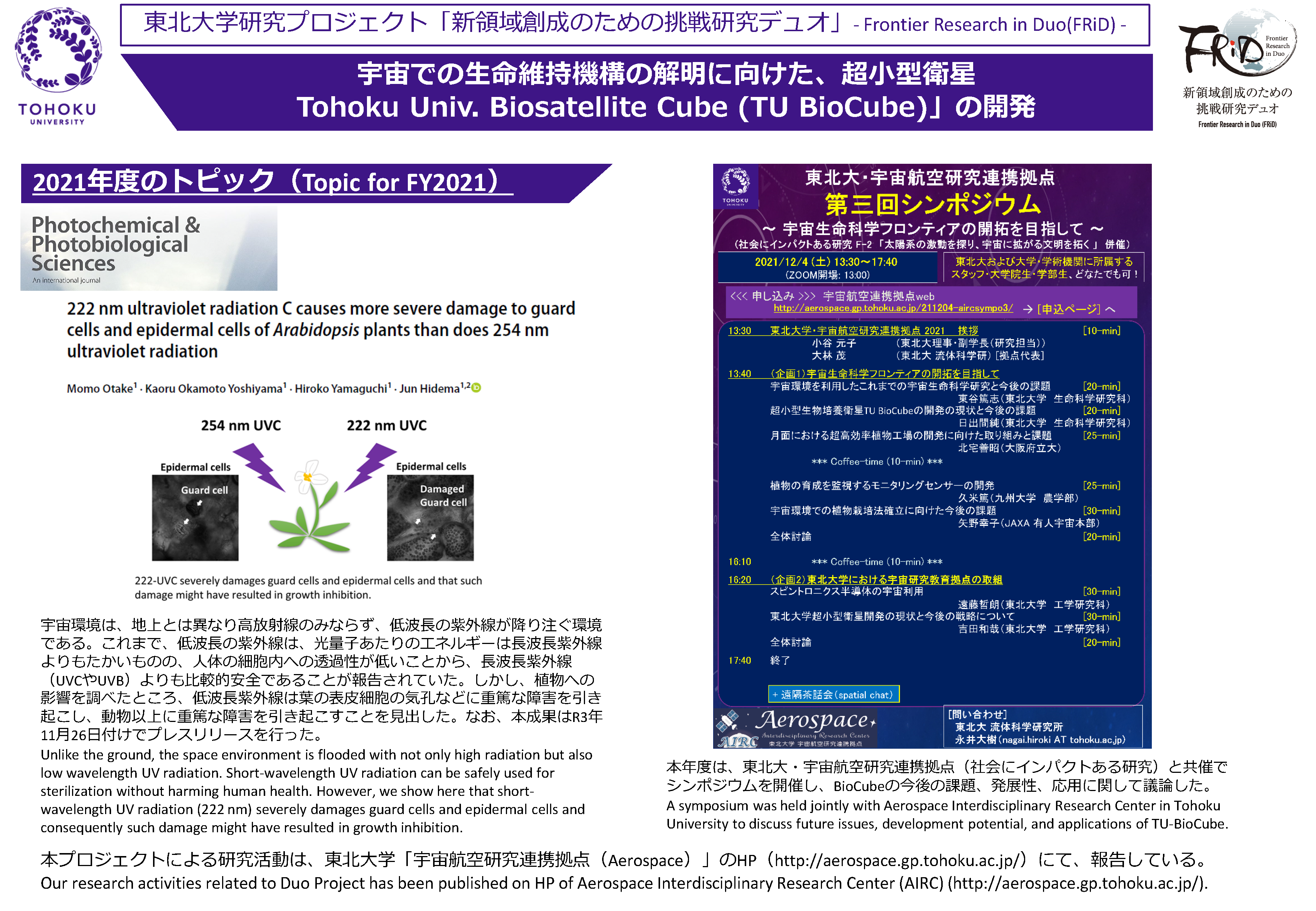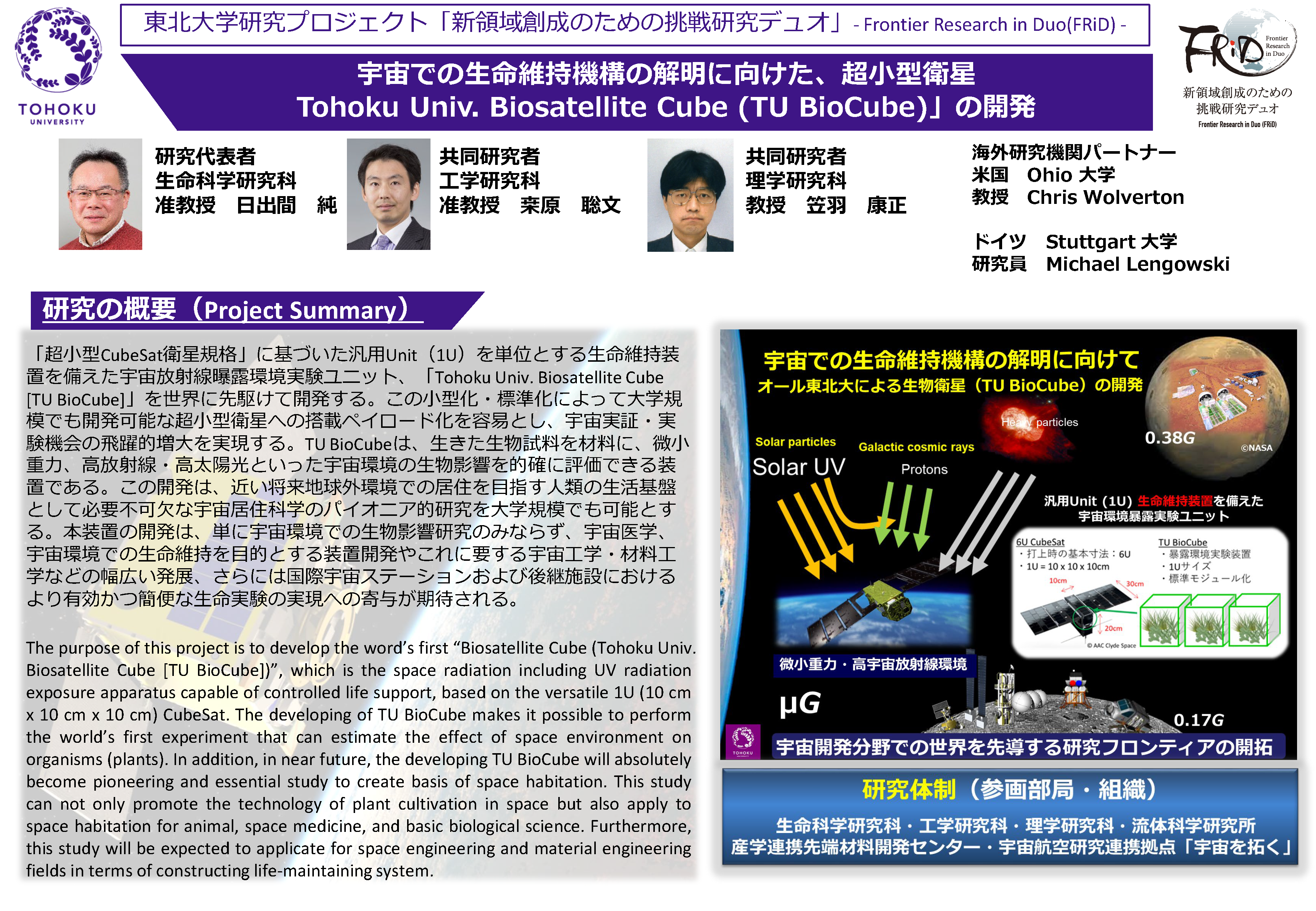Researcher name
Project Summary
The purpose of this project is to develop the word’s first “Biosatellite Cube (Tohoku Univ. Biosatellite Cube [TU BioCube])”, which is the space radiation including UV radiation exposure apparatus capable of controlled life support, based on the versatile 1U (10 cm x 10 cm x 10 cm) CubeSat. The developing of TU BioCube makes it possible to perform the world’s first experiment that can estimate the effect of space environment on organisms (plants). In addition, in near future, the developing TU BioCube will absolutely become pioneering and essential study to create basis of space habitation. This study can not only promote the technology of plant cultivation in space but also apply to space habitation for animal, space medicine, and basic biological science. Furthermore, this study will be expected to applicate for space engineering and material engineering fields in terms of constructing life-maintaining system.
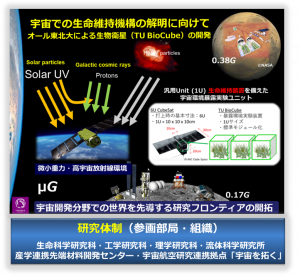
Results
【2022】
【2021】
【2020】
【2019】
We wrote “Space Radiation Biology for Living in Space” for a review article with a astronaut, S. Furukawa and space life scientists. This review article was published in BioMed Research International at 2020 ( Article ID 4703286, accepted 13 March, 2020). In this review article, Dr. J. Hidema wrote “Solar Ultraviolet-B radiation in Space” and emphasized the importance of research on “Combined Biological Effects of µG and UV radiation on Plant” as a co-author.
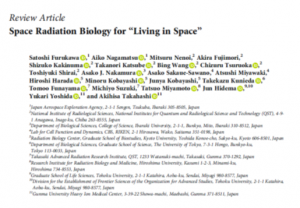
Our research activities related to Duo Project has been published on HP of Aerospace Interdisciplinary Research Center (AIRC) (http://aerospace.gp.tohoku.ac.jp/).





